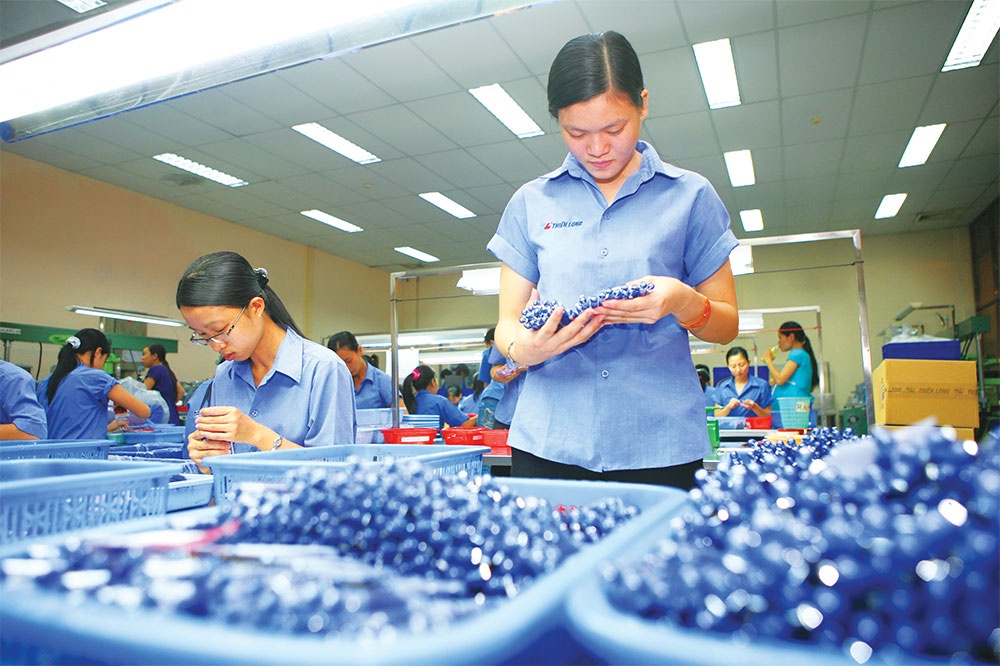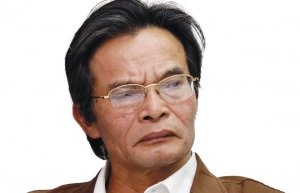Authorities urged to step up fiscal scheme
Prime Minister Pham Minh Chinh has urged ministries, agencies, and localities to quicken the implementation of the Programme on Socioeconomic Recovery and Development (PSRD) for 2022-2023, which he said remains slow and will affect the country’s socioeconomic recovery and enterprises’ performance.
 |
| The government’s fiscal stimulus will provide a boost to industry across the country |
“The economy has continued its positive recovery trend, but it is likely that the situation may become more difficult until the year’s end and in 2023. Thus we must quicken the deployment of solutions to spur economic growth including the PSRD and boosting disbursement of public investment,” said PM Chinh. “All cumbersome procedures must be cut and reduced. Capital from ineffective projects must be transferred to effective projects.”
In January, the government launched the PSRD, and the National Assembly (NA) issued Resolution No.43/2022/QH15 on a fiscal and monetary policy worth $15 billion or about 4.5 per cent of GDP last year to support the PSRD.
However, the World Bank has commented, “The implementation of the programme has been slow as observed in the instances of previous COVID-19 support packages in 2020-2021. The VAT, corporate income tax, personal income tax, and land rent deferral, the largest components in new revenue measures, were enacted only on May 28, four months after the programme was approved.”
The World Bank cited a number of official sources stating that the total reduction of taxes, land rents, fees, and charges under the programme was estimated at VND16.1 trillion ($700 million) or 25 per cent of the plan at the end of May. This included VND6.6 trillion ($287 million) in VAT reduction, about 13 per cent of the plan.
On the expenditure side, the government has added VND18.3 trillion ($795.65 million) to the public investment plan for 2022, about 14 per cent of the programme’s total planned public investment, although data on the execution of the allocated capital are not available. Guidelines on the interest subsidy were officially launched only on May 20.
The disbursement of direct transfers to provide rent support for workers was marginal VND2 billion ($87,000) out of VND6.6 trillion ($287 million) as of the end of May), “thereby failing to provide support when most needed.”
According to a July report by data and analytics group Fitch Solutions, higher spending growth on the back of increased capital expenditure will put further pressure on Vietnam’s fiscal position.
“As part of the January 2022 stimulus package, Vietnamese policymakers plan to spend a further VND176 trillion or $7.65 billion (1.9 per cent of GDP) in 2022 and 2023. The details have yet to be fully resolved, but our current assumption is that about half of the package will be disbursed by the end of 2022,” Fitch Solutions said.
“Around 60 per cent of the package will be invested in infrastructure such as transport – an area which authorities have previously expressed interest in developing. The government had previously indicated plans to invest at least VND1 quadrillion ($43.47 billion) into transport by the end of 2030. We forecast total expenditure growth of 8.5 per cent in 2022, from a contraction of 4.1 per cent in 2021.”
According to Fitch Solutions, while the wider fiscal deficit will increase Vietnam’s debt burden, debt-to-GDP will remain contained. “We forecast debt-to-GDP of 57 per cent in 2022, below the country’s 2016 high of 63.7 per cent and the new, lower statutory limit of 60 per cent, set by the government in 2021.”
However, Era Dabla-Norris, assistant director of the Asia-Pacific Department and mission chief for Vietnam at the International Monetary Fund, told VIR that she is viewing positive impacts from the PSRD.
“If implemented effectively, the programme would spur infrastructure investment, and create momentum for reforms in areas under its agenda such as climate change, digital transformation, innovation, financial inclusion, business climate, education, and the labour market,” Norris said. “These would play a critical role in limiting economic scarring - partially compensating for slower capital accumulation during the pandemic - and can boost productivity.”
PM Chinh has asked the Ministry of Finance (MoF) to soon complete a scheme on mobilising financial resources for the PSRD including the review of arrangements on official development assistance and foreign concessional loans in a manner that Vietnam’s benefits are ensured.
The MoF must devise suitable solutions to provide sufficient capital for Vietnam Bank for Social Policies to implement policies within the PSRD.
Last week, the government issued Decision No.1113/QD-TTg on assigning VND147.138 trillion ($6.4 billion) from the central budget’s investment plan within the PSRD for ministries, central agencies, and localities as stipulated by Resolution 43. The prime minister ordered them to review projects and programmes funded by the PSRD, with the capital required to be “used effectively”.
In fact, under Resolution 43, about $7.65 billion has already been allocated by the NA. Of which, $7.5 billion has been announced by the prime minister to ministries, central agencies, and localities so that they can complete investment procedures for 264 duties and projects.
The remaining sum is about $150 million – including $108.7 million that fails to meet conditions for investment and $41.3 million that has been returned by some ministries and localities without being invested.
 | Banks speed up disbursement of VND40 trillion interest subsidy package Through credit packages with preferential interest rates, and products and services customised to each customer group’s needs, banks focus on helping enterprises access capital to restore production and business. |
 | Staying ahead with fiscal and monetary milestones As the State Bank of Vietnam has raised interest rates to control inflation, economist Le Xuan Nghia spoke with VIR’s Hong Dung about the impact of the hike on the credit market. |
What the stars mean:
★ Poor ★ ★ Promising ★★★ Good ★★★★ Very good ★★★★★ Exceptional
Related Contents
Latest News
More News
- Cashless payments hit 28 times GDP in 2025 (February 04, 2026 | 18:09)
- SSIAM and DBJ launch Japan Vietnam Capital Fund (February 04, 2026 | 15:57)
- Banks target stronger profits, credit growth in 2026 (February 04, 2026 | 15:43)
- Vietnam on path to investment-grade rating (February 03, 2026 | 13:07)
- Consumer finance sector posts sharp profit growth (February 03, 2026 | 13:05)
- Insurance market building the next chapter of protection (February 02, 2026 | 11:16)
- NAB Innovation Centre underscores Vietnam’s appeal for tech investment (January 30, 2026 | 11:16)
- Vietnam strengthens public debt management with World Bank and IMF (January 30, 2026 | 11:00)
- Corporate bond market poised for stronger growth cycle (January 28, 2026 | 17:13)
- Vietnam's IPO market on recovery trajectory (January 28, 2026 | 17:04)

 Tag:
Tag:




















 Mobile Version
Mobile Version